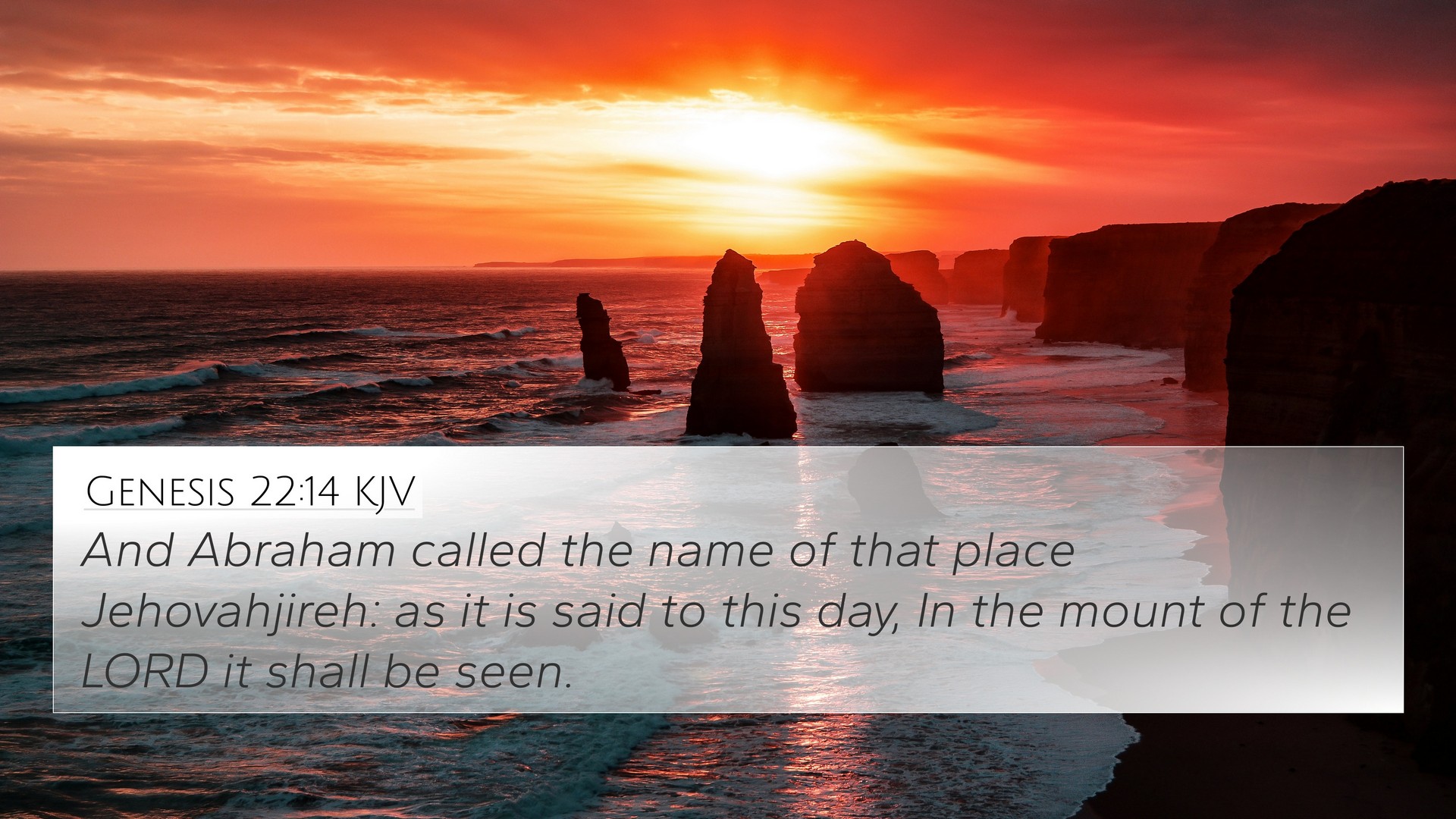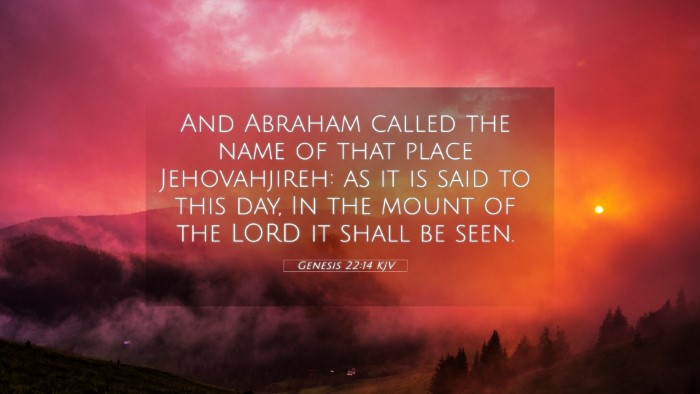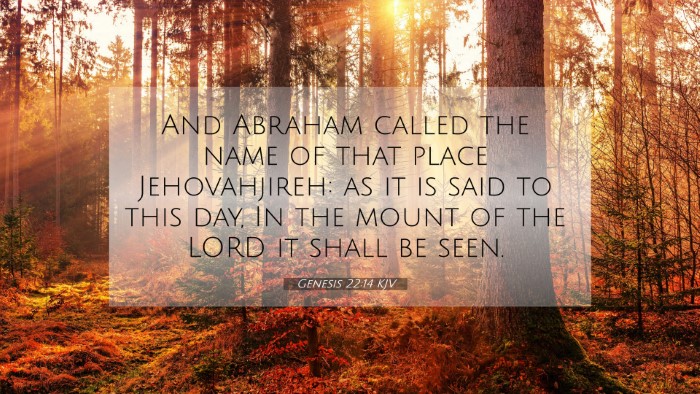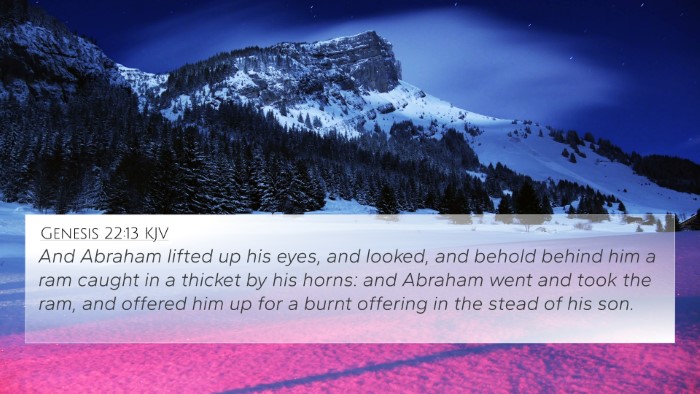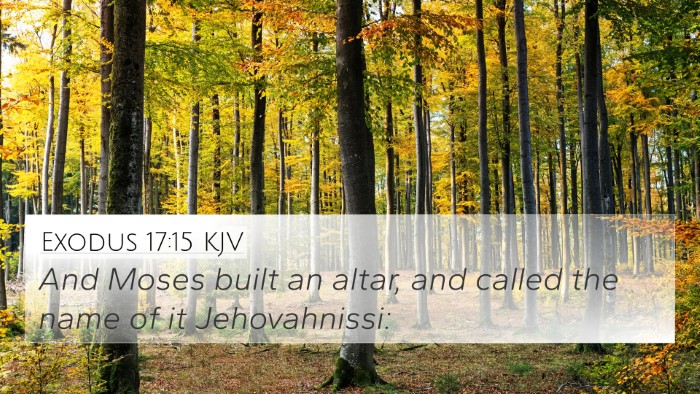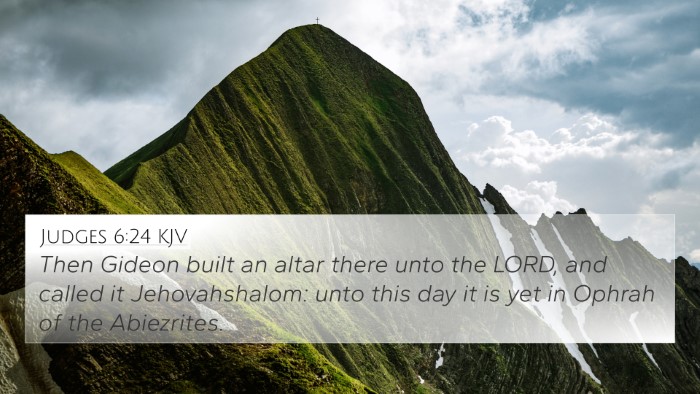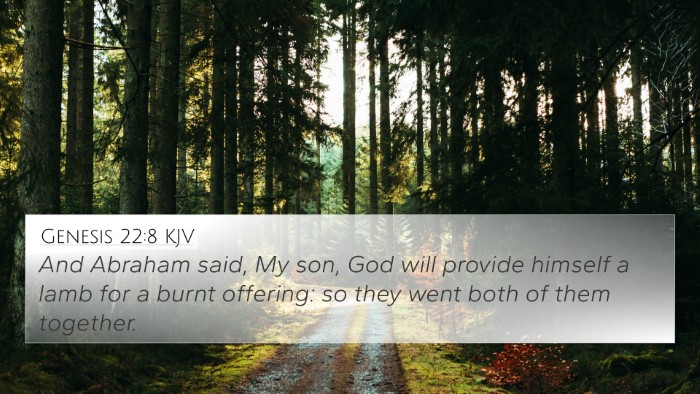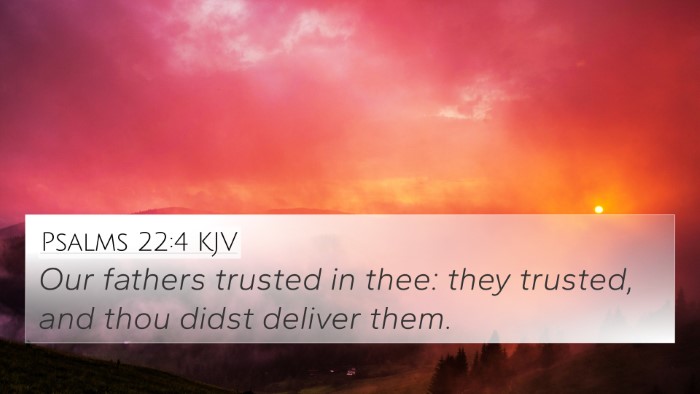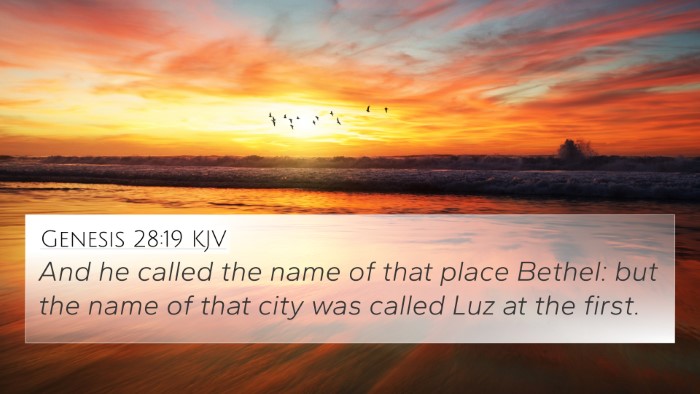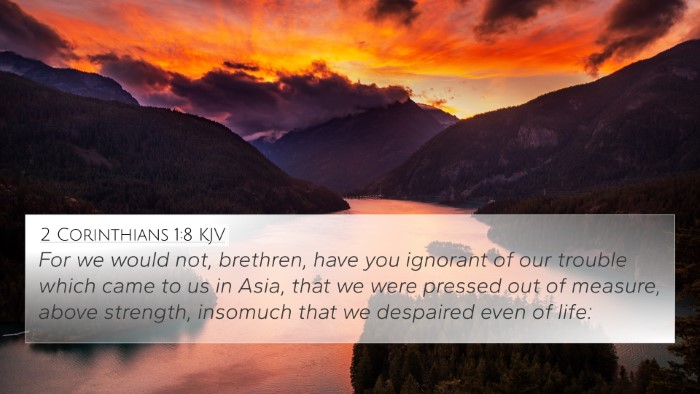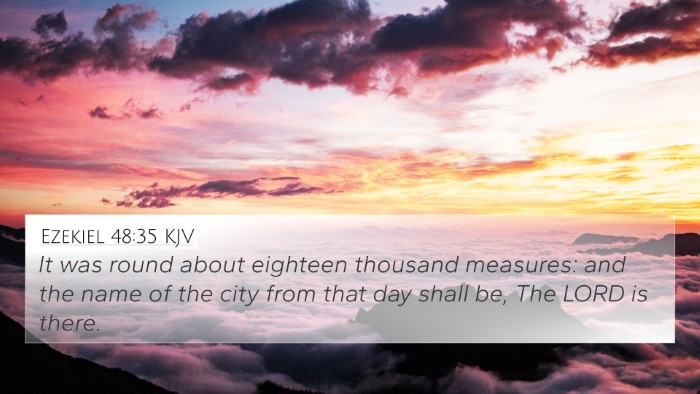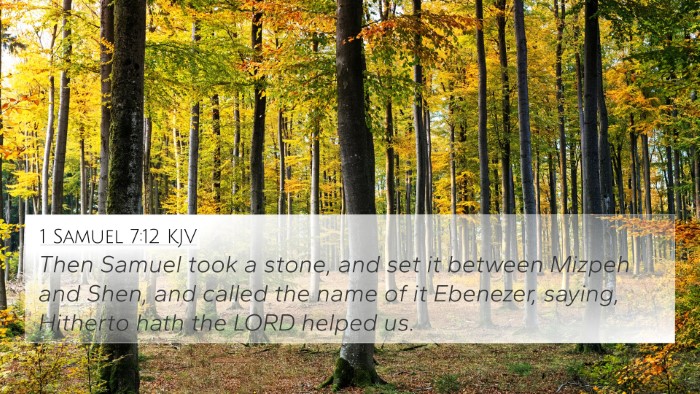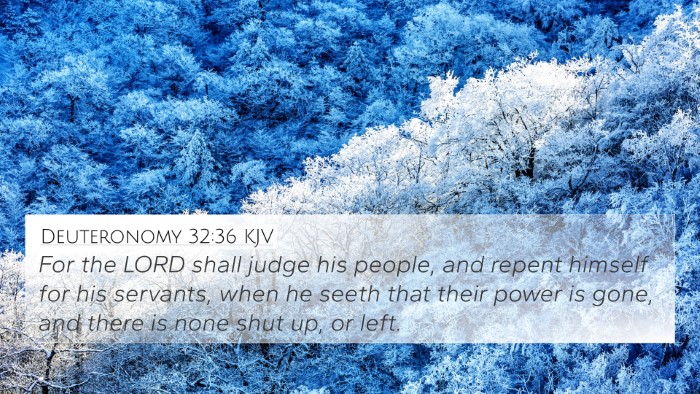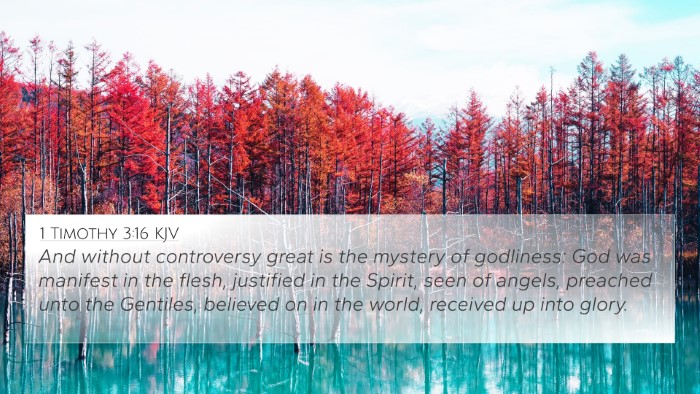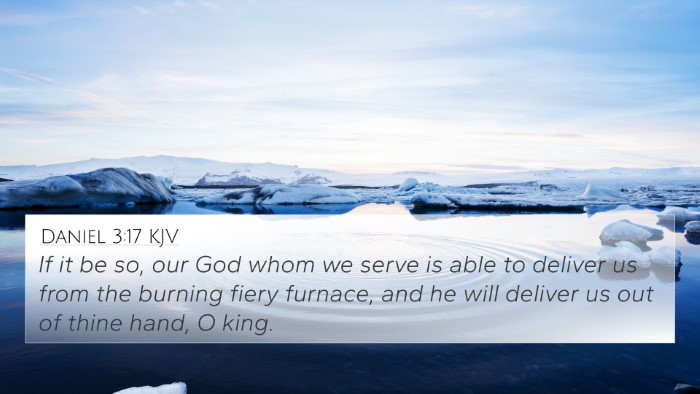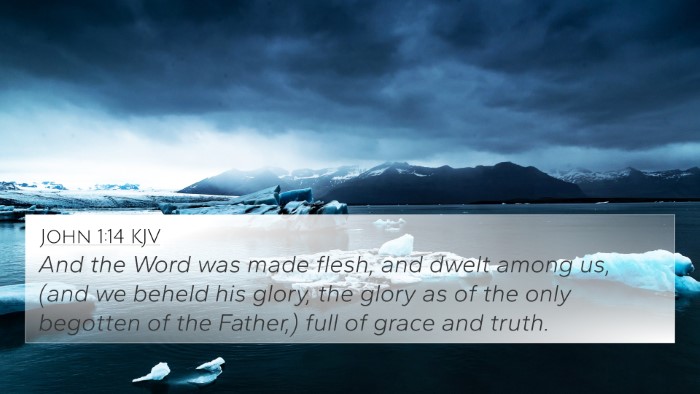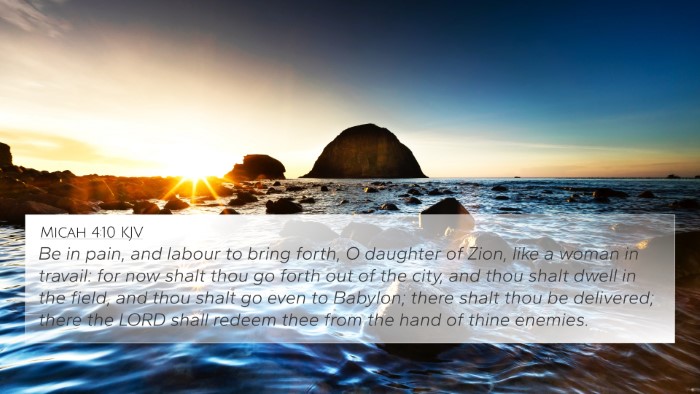Understanding Genesis 22:14
The verse Genesis 22:14 states, "And Abraham called the name of that place Jehovah-jireh: as it is said to this day, In the mount of the Lord it shall be seen." This moment in Scripture is vital for understanding the themes of faith, provision, and divine revelation throughout the Bible.
Below is a summary of insights from multiple public domain commentaries, including those by Matthew Henry, Albert Barnes, and Adam Clarke.
Contextual Background
Genesis 22 narrates the account of God testing Abraham's faith by commanding him to sacrifice his son, Isaac. As Abraham approaches the act, God intervenes and provides a ram as a substitute for Isaac. This pivotal moment leads Abraham to name the location Jehovah-jireh, which translates to "The Lord Will Provide."
Key Insights from Commentaries
-
Matthew Henry:
Henry emphasizes that this story illustrates God's provision in times of need. The naming of the place as Jehovah-jireh signifies a testament to God's faithfulness. He further mentions that the mount represents a place where God meets with humanity and reveals His glory.
-
Albert Barnes:
Barnes highlights that in the future, this site would be known as significant for divine encounters. He explains that God's timely provision of the ram stresses the importance of faithfulness from those who follow Him. This instance reinforces the belief that God provides solutions to our dilemmas, often in unexpected ways.
-
Adam Clarke:
Clarke notes that the term Jehovah-jireh not only indicates God's provision but also serves as a prophetic foreshadowing of Christ's ultimate sacrifice on the Cross. Clarke stresses the correlation between this moment and the overarching narrative of redemption throughout the Scriptures.
Thematic Connections
Genesis 22:14 serves as a linking point with various biblical themes, such as sacrifice, divine testing, and God’s providence. It aligns closely with several passages:
Bible Cross-References
- Exodus 3:14: God reveals His name as "I AM," emphasizing His eternal and unchanging nature.
- Philippians 4:19: "But my God shall supply all your needs according to his riches in glory by Christ Jesus," reflecting God's provision for believers.
- Romans 8:32: "He that spared not his own Son, but delivered him up for us all, how shall he not with him also freely give us all things?" God’s willingness to sacrifice His Son parallels Abraham’s test.
- 1 Corinthians 10:13: God provides a way of escape in our trials, mirroring Abraham’s provision of the ram instead of Isaac.
- Hebrews 11:17-19: Discusses Abraham’s faith, stating that he believed God could raise Isaac from the dead.
- John 3:16: "For God so loved the world, that he gave his only begotten Son…" connects Abraham's sacrifice with God’s ultimate gift of Jesus.
- Genesis 22:5: Abraham tells his servants, "Stay here with the donkey; the lad and I will go yonder and worship," indicating his intention to worship God through obedience.
Inter-Biblical Dialogue
The connection of Genesis 22:14 to other Scriptures exemplifies the narrative flow of the Bible as a cohesive document that speaks of God’s character—His provision, faithfulness, and the deep relationship He desires with humanity.
Understanding how this verse interacts with both the Old and New Testaments can enhance one's biblical study. Themes that emerge from the cross-referencing include:
- The act of sacrifice as a central doctrine in the faith journey.
- The foreshadowing of Christ’s sacrifice found in the Old Testament narratives.
- The promise of provision as a recurring theme in God's relationship with His people.
Conclusion
Genesis 22:14 is not just a historical account—it's a foundational verse that ties together the Old and New Testament narratives. As believers reflect on this verse, they should consider how it relates to their lives and as part of the larger story of redemption found throughout the Scriptures. By engaging in cross-referencing Bible study methods, readers can discover rich connections that deepen their understanding and appreciation of the Word of God.
